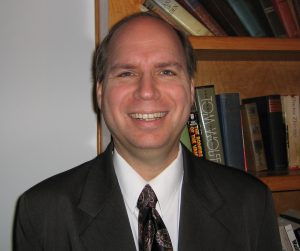
The largest publishing trade association in the U.S. recently awarded Dr. David Beito, a University of Alabama history professor, and his wife Dr. Linda Royster Beito, associate dean of arts and sciences at Stillman College, the gold prize for their book, “T.R.M. Howard: Doctor, Entrepreneur, Civil Rights Pioneer,” at the 31st annual Independent Book Publishers Association Benjamin Franklin Awards in Chicago.
The IBPA Benjamin Franklin Award program has remained one of the highest national honors for independent publishers for more than 30 years.
“We feel great about it because it was a very competitive award, so it really means something,” said David Beito. “There were hundreds of applicants with a big committee of educators and librarians judging the entries.”
The IBPA is a not-for-profit membership organization serving and leading the independent publishing community through advocacy, education and tools for success, according to its website.
“The mission of the IBPA Benjamin Franklin Awards is simple: to recognize excellence and innovation in independent publishing,” said IBPA CEO Angela Bole. “Unlike many other award programs, the IBPA Benjamin Franklin Awards demand both editorial and design excellence and entrants are judged independently on both.”

More than 1,500 entries were submitted to the competition. After seven months of judging, one gold winner and two silver winners were selected in each of the competition’s 54 categories.
The Beitos’ biography of black civil rights pioneer Dr. Theodore Roosevelt Mason Howard won the gold prize in the biography category. The book was published in 2018.
David Beito said Howard was a prominent figure at the beginning of the civil rights movement in the rural Mississippi Delta, one of the most hostile places to participate in the movement. He organized and led successful rallies, made inflammatory remarks and served as somewhat of a Malcolm X-like figure.
“I think that Howard is one of those characters that everyone goes ‘who?’” said David Beito. “They think he can’t be that important since they never heard of him. But once they read about him, they realize how important he was.
“The book is a good story, not because we had to embellish it, but because his life is a good story. It’s a story that told itself. We just got in the material and brought it out.”
